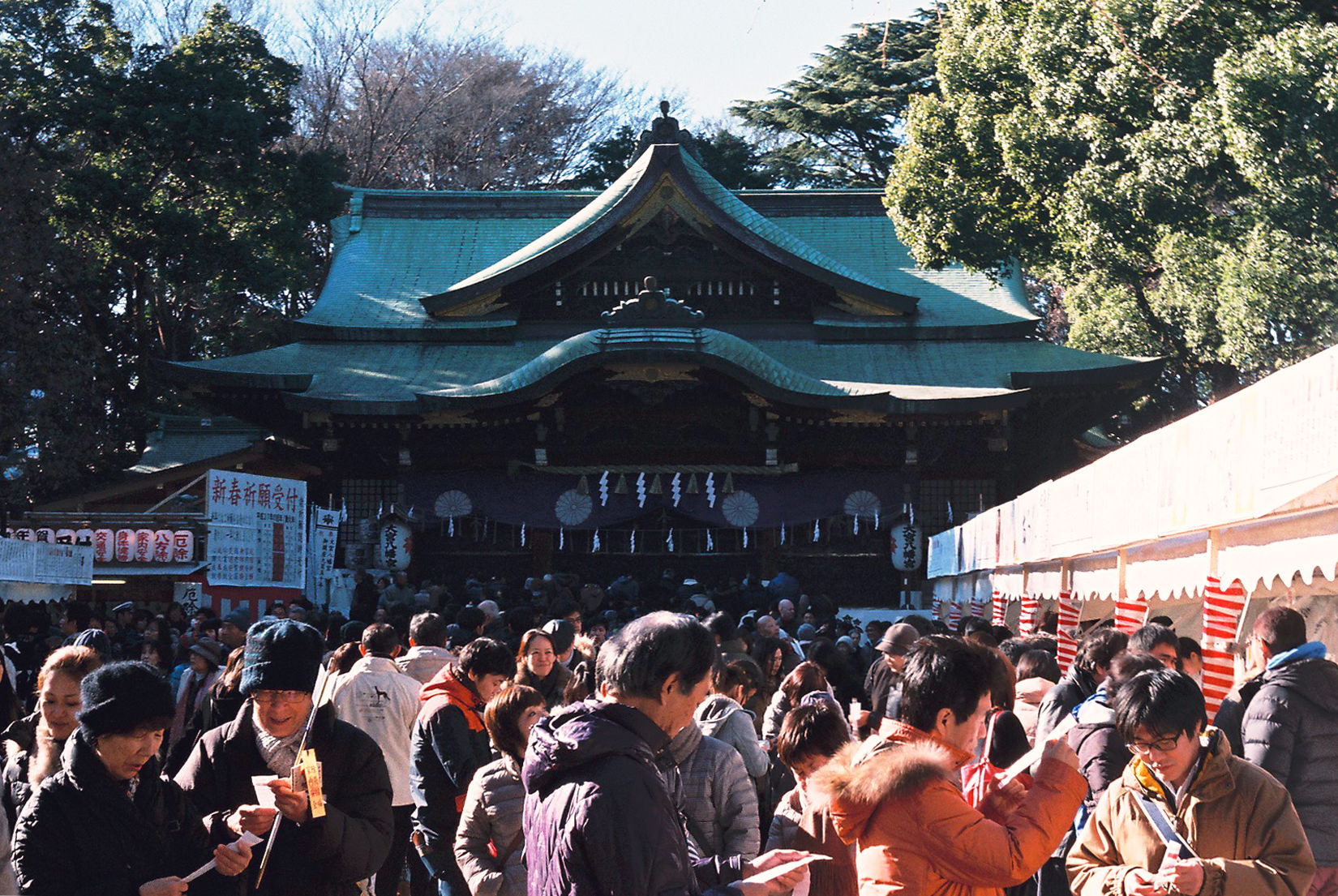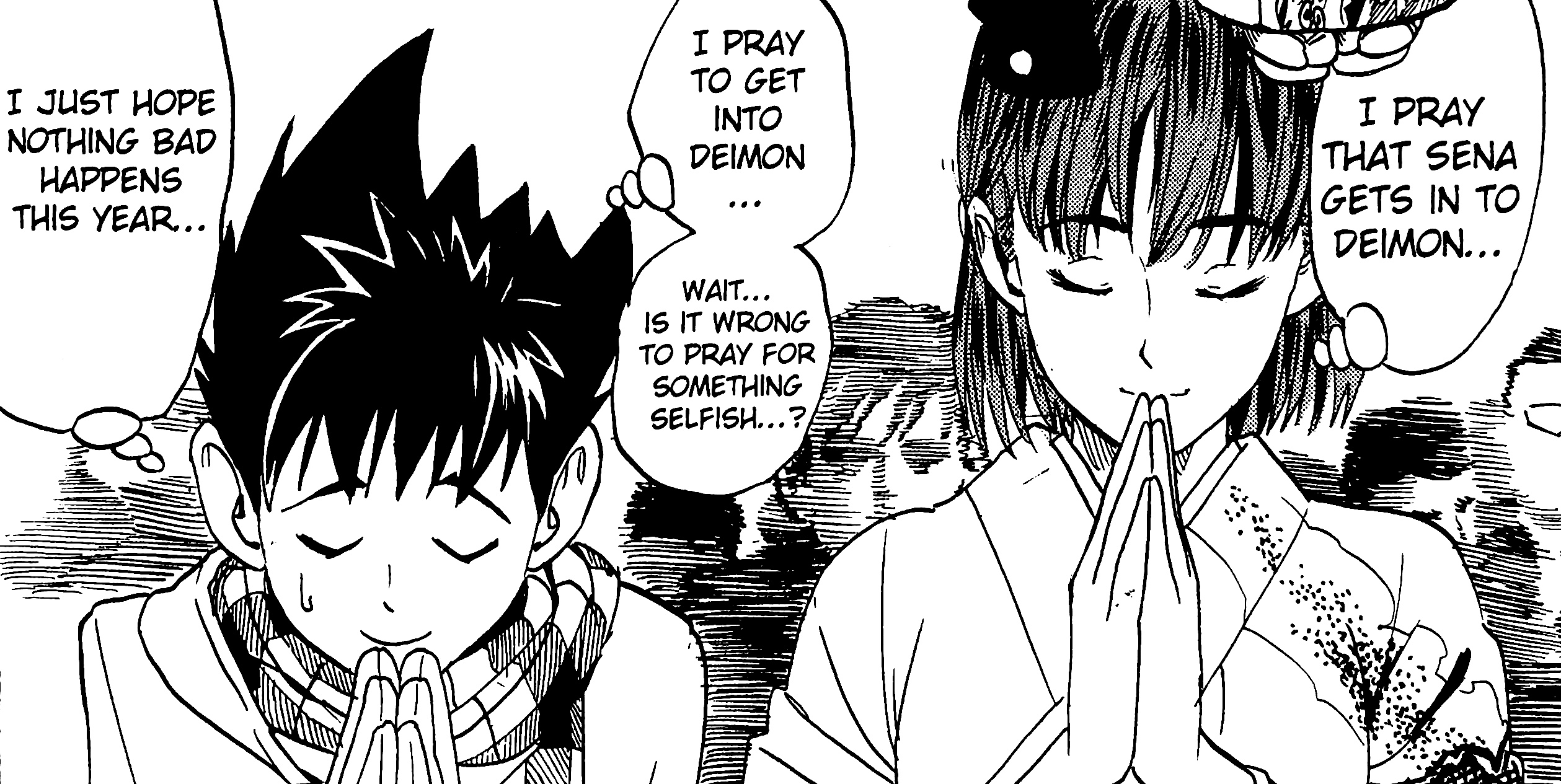 Hatsumoude
Hatsumoude 

Hatsumoude (初詣) is the first visit to a Shinto shrine or Buddhist temple during the first three days of the new year.
Japanese New Year, or Shougatsu (正月), is a six day long festival, traditionally running from December 29th to January 3rd. During this time, most Japanese have vacation days off from work or school, and use it to travel, exchange gifts, and spend quality time with their loved ones. They also prepare to start another year fresh by cleaning their homes and paying off the previous year’s debts. Other festive traditions include placing decorative bamboo stalks called kadomatsu (門松) at the entrances of homes and businesses; children receiving gift money from adult relatives called otoshidama (御年玉); and enjoying traditional New Years' dishes called osechi (お節).
During Hatsumoude, millions of Japanese flock to their local shrines and temples with the same self-improvement mindset, so the steps and grounds are extremely crowded around this time. While dressing formally isn't required, some may dress in traditional kimono for the occasion. Visitors will offer prayers and petitions to fulfill their hopes for the new year, return old omamori amulets in exchange for new ones, and buy omikuji fortunes to learn what awaits them in the future.
 Relevance to Eyeshield 21
Relevance to Eyeshield 21 

In the volume 9 bonus comic, Sena and Mamori are making a Hatsumoude visit to a Shinto shrine.
They both pray that Sena’s accepted into Deimon High School, Mamori buys a bunch of omamori to help Sena pass his entrance exam, and Sena buys a fake player recruitment omikuji from Kurita and Hiruma.



